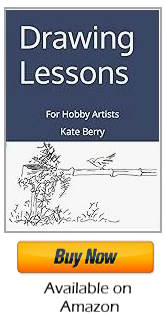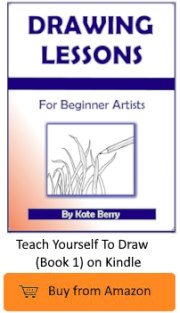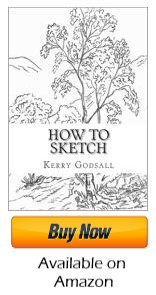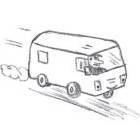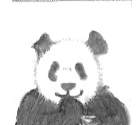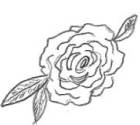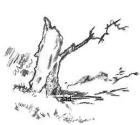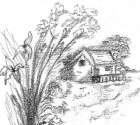Search for images or info
Pencil Sketches
An artist from long ago once said that pencil sketches help you to read in art terms and to spell in symbols. Is that cool or what?
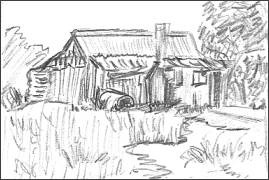
I've admired this intriguing art form for years and since I taught myself how to draw, I decided to take up the next challenge and figure out how to produce an image with as few strokes as possible.
I set about this new task by searching through a lot of old art books and I made notes about everything that was simple and made good sense to me.
If anyone knows the best way to obtain a quick likeness, it is those clever artists from the past.
I converted my journal notes into a book which is simply entitiled How To Sketch. It contains all of the most helpful information that I followed, along with my pencil sketches and also artwork from our past.
The pictures you see on this page do not form part of the book but they are basically a diary of my progression.
The Difference Between Drawing and Sketching
There are a few different interpretations of the differences but I would say this following illustration is a sketch...
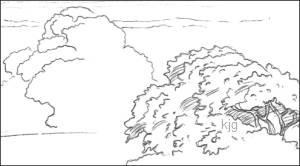
When I look at it, I think it's too neat but I'm still practicing and learning how to illustrate things with very few lines.
What Consititutes A Sketch:
- To translate or record a scene or subject quickly. Your hand should move freely with no regard for neatness or perfection.
- Done rapidly to capture a fleeting moment.
- Can be made up of outlines alone and are not meant to be perfect.
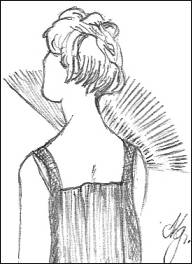
Your aim is to capture the absolute basics of your subject, to drill down to its essence.
I copied this simple pencil sketch of a girl from an old book.
It didn't take long to finish, I wasn't concerned with background or even if it was proportionate.
To acquire speed, you only need to practice by capturing anything that appeals to you. When you see some really easy illustrations, copy them!
This is a versatile hobby, you can make it whatever you want it to be. One thing is certain, it will always be delightful.
- You can use any medium -- pencil, charcoal, ink and wash, whatever you like.
I recommend beginners use pencil, it's the best medium because it allows you to concentrate on obtaining effect with no other distractions.
- Use this rapid art form to make a visual note to self.
You can do easy sketches or dedicated ones with tons of details. Again, the choice is yours and how you want to portray your subject. I'm all for easy! Well, you know how I love to reduce everything to its simplest form.
Categories
Sketches
Instruction
Freebies
Other Areas

** Disclaimer: I receive a small commission if you buy via my links -- at no extra cost to you. **
Art Quote
An artist cannot fail; it is a success to be one.
- Charles Horton Cooley
Your Comments
Thank you for this wonderful site.
I've always wanted to learn to draw, now as an adult, I feel it is possible.
Popular Pages
Questions? Go here first ...
What's needed to get started ...
My Favorite ...
The How To Sketch Guide
Here's a book that finally dispels the mystery of sketching!
... it only takes a little instruction
or guidance... Read more >>
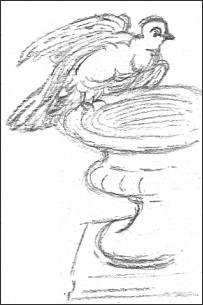
- Pencil sketches are simple and can represent the bones of a drawing.
- If you have felt that drawing is a little too complicated, then sketching will be a great alternative for you.
If you practice a lot at home, you will be more prepared when you venture outside with your sketchbook.
This bird image was one of my very first pencil sketches.
You experience a certain kind of freedom once you decide to do a quick sketch.
The lines flow from your pencil and you don't feel obligated to make them right or perfect, it's a wonderful feeling.
You''ll find straightforward information just like this, and more, in the How To Sketch guide.
Now Let's Discuss Drawing:
- Done with thought and attention to detail, to arrive at a finished image.
- Often originated from a simple sketch.
I selected a fine ink pen to copy this crabapple from an art magazine. I love the simple lines and the forgiving topic of nature.
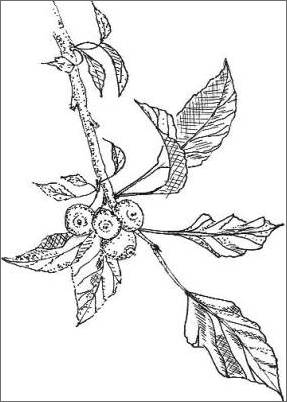
You can sketch and draw to create varied effects in just one illustration because you are the creator.
There is no right way or wrong way, it's the spirit inside of you that you listen to.
I used a combination of sketching and drawing in the tree image below where I took some care to produce the main tree and then scribbled the grass along with the trees in the background.
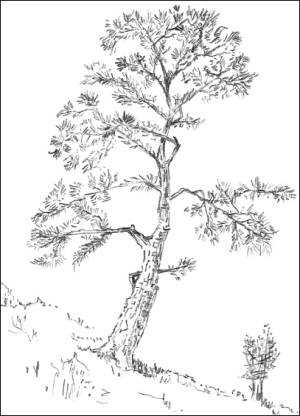
Any medium can be used for drawings, whatever takes your fancy. I love using pencil and I also enjoy ink but it's up to you.
We can use erasers on drawings but I'd be averse to using an eraser on sketches in case they lose a little bit of soul.
Learning Resources
The How To Sketch book is based on the same information that I used for my studies. It has an easy format with the simple technique outlined in stages.
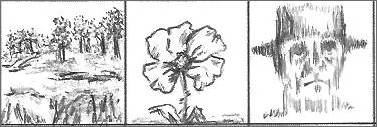
(I copied these from a John Deacon Drawing Book for practice)
There is no harm in copying existing artwork providing you don't claim the creation as yours and sell it.
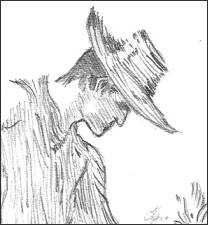
Try to get into the habit of noting the title of a book or an artist's name on the back of your paper. Do this lightly in pencil so you don't damage the front side of the paper in any way.
This sketched man is my version of an old image with no copyright restrictions.
I love the way it was built with a series of lines and no outline was used in the original. I felt a little insecure with no boundary line and I think I wrecked it by inserting the profile outline. Another lesson for me!
I copy because I feel I need tuition on how to place lines within the subject at hand, so by all means, do the same if you need that guidance as well.
These pencil sketches below were done as part of a fun exercise using shapes.
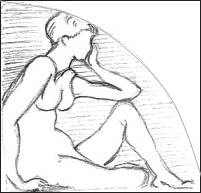
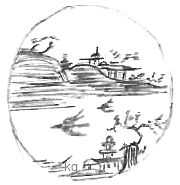
The girl was done within a quarter of a circle. My line was too light so I added it in with my image software - Paint.net.
The Japanese sketch was done within a circle which isn't drawn perfectly.
It's my preference to create the whole image and not rely on using templates or other tools but that doesn't mean you can't use things that help you achieve the right result.
One of my main hurdles was to let the pencil move freely over the paper, without restriction, and to stop trying to control it or be neat. Liberation happens with plenty of practice, just wait and see. Don't quit, don't stop, and always believe in yourself.
If you want to own a copy of my How To Sketch book, you will also receive four (4) bonus books as a token of my appreciation for your support.
Here is a little example of artwork I produced from one of those bonus books called How To Draw - Step by Step.
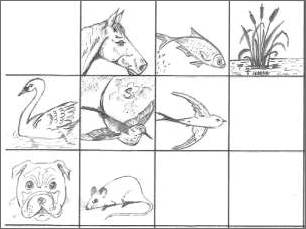
It was an extra challenge to follow the steps within a one inch square thumbnail (that was my choice) but they were great fun to create.
If you really want to do pencil sketches, read more about the How To Sketch guide and see if it's right for you.
See the links below for a variety of sketches:
Related subjects for you to enjoy...
* Allaboutdrawings.com is a participant in the Amazon Services LLC Associates Program, an affiliate advertising program designed to provide a means for sites to earn advertising fees by advertising and linking to Amazon.com.
Copyright © 2005 - 2025 www.allaboutdrawings.com. All rights reserved.





